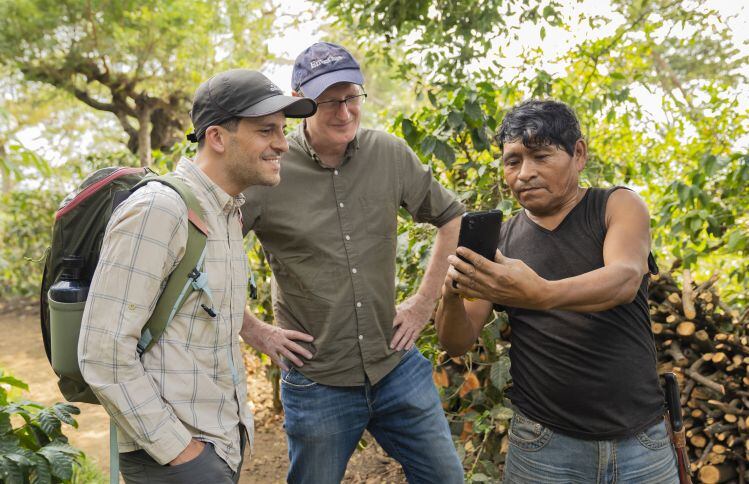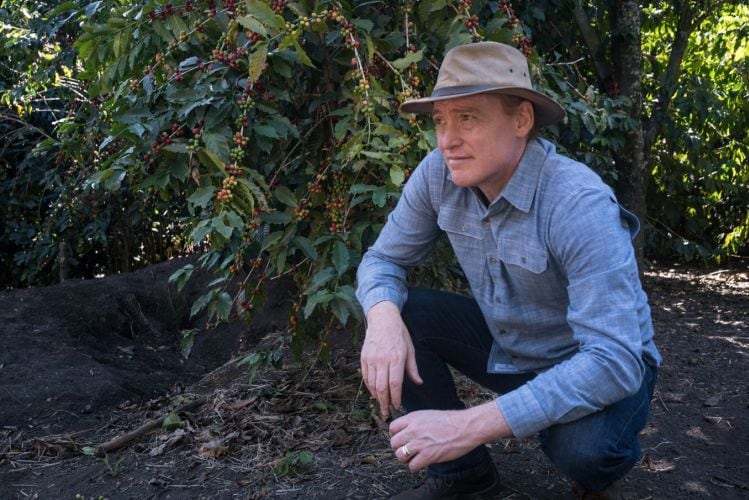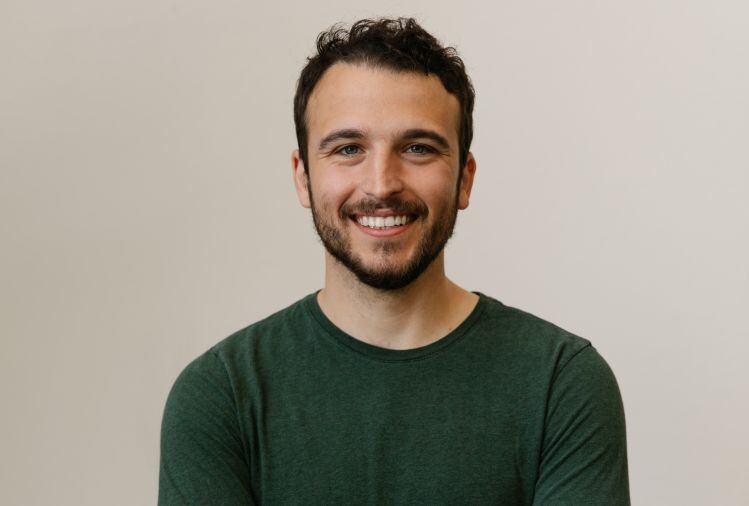Speaking after Peet’s announced the fruits of a six-year partnership with Enveritas to verify the conditions and practices of 59,000+ coffee farms in 24 regions around the world that supply it with coffee beans, Welsh said it was imperative to improve ethical and environmental standards throughout the supply chain, not just for a small subsegment of the market associated with one certification scheme or another.
“Responsibly sourced coffee shouldn't be a niche product,” he told FoodNavigator-USA.
“Coffee is not guaranteed to be with us in 20 years, so it’s in our interests and in consumers’ interests [as well as farmers’ interests] to do this. Problems will never be managed as long as we’re hiding from them, if we treat this as a corporate reputational defense exercise instead of a positive social impact exercise.”
Geospatial analysis and AI
Like other schemes such as Fair Trade or the Rainforest Alliance, Enveritas’ 30 standards address multiple factors from pay and working conditions on farms, to pesticide use, soil and water conservation, to record-keeping, but attempt to reach a broader set of farmers, said Welsh.
Key to this is the application of a more data-driven approach deploying geospatial analysis and AI followed by on-the-ground observations so that the whole supply chain – 85% of which is farmed by smallholders farming less than two hectares - can improve its practices.
For example, he said, “They're using Google technology but using it to a higher degree of resolution and then adding some AI so they can identify coffee trees and basically map out what’s out there, so you can zero in on any particular part of it if you're sourcing coffee in a given area, drop pins, and send an army of surveyors or auditors to those exact points on the map with coordinates."
‘Enveritas is going to be providing us over the next couple of years, with some of the most accurate data on where deforestation might be occurring’
When it comes to deforestation, he said, “there are other crops that perhaps are more challenged in that regard [beef, soy for cattle feed, palm oil etc], but it has not been well measured in coffee, and Enveritas is going to be providing us over the next couple of years, with some of the most accurate data on where deforestation might be occurring.
“If you look from too high up in space, it's just different blurry blobs, and those tend to be misinterpreted, to an alarming degree, actually, so that deforestation is identified where it's not actually occurring in many cases, and then it is also failing to be identified where it is happening.”
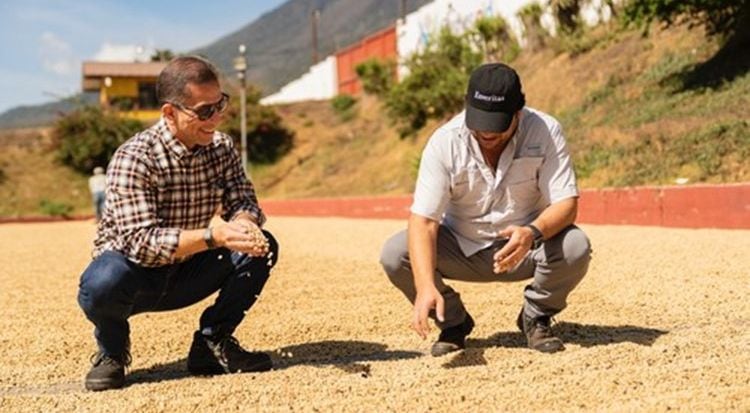
‘Small farmers need climate smart coffee varieties to grow’
While traceability is very important for coffee companies such as Peet’s, which sources around 80 million pounds of coffee a year, Welsh added, “Is it really that important to know whether all 1,000 of the farmers in a given area contributed one sack each to this or that shipment of coffee?
“Or is it [more important to understand] that the challenges of one farmer in that region are probably similar to the challenges faced by all of them in that area, and if you measure the challenges, you have a good idea of how you might be helpful.”
What being helpful means in practice will vary depending on the region, but in general terms, he said.
“It’s about pinpointing what’s really needed in each place that makes us more effective in designing programs. We have 39 different impact projects ranging from supporting schools and medical clinics, to studying alternative pest management techniques, to farmer training around increasing yields, quality and to some extent, resilience as well through agronomic techniques like proper pruning and mulching.”
‘We're 50 years behind corn and wheat in terms of developing resistant varieties, more productive varieties’
To tackle an existential threat such as climate change, however, “small farmers need climate smart coffee varieties to grow," he said, "because the climate is changing rapidly under their feet, and so they need coffee tree varieties that are drought resistant or coffee rust resistant, and that requires collaboration on an industry-wide scale, and that's why Peet’s was one of several coffee companies to found World Coffee Research.
“Their main contribution is creating breeding programs so that climate smart varieties can be developed and disseminated to smallholder farmers.”
When it comes to plant breeding, he said, “Coffee is really behind in this regard; we're 50 years behind corn and wheat in terms of developing resistant varieties, more productive varieties.
“Coffee is not only growing more or less the same stuff we've been growing for 100 years, it's not even well identified, so another World Coffee Research project is all about training and certifying nurseries so that what goes out to farmers will be what they think it is, so that they get pure lines that behave in the way that they should and are let's say drought resistant if they are in a dry area.”
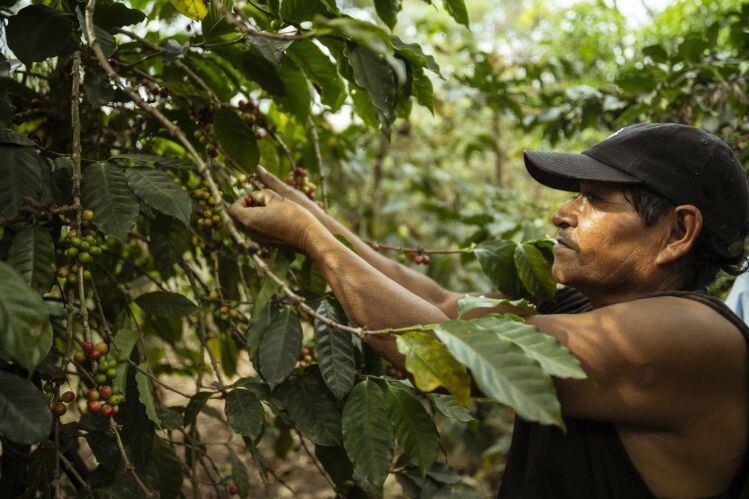
‘Coffee potentially offers us a really positive source of carbon sequestration’
While some startups proposing to reverse engineer coffee with more sustainably or ethically sourced ingredients tend to highlight the negative social and environmental impacts of the crop, he said, “Coffee potentially offers us a really positive source of carbon sequestration because it's a tree crop so it doesn't get pulled up and harvested every year.
“Coffee is also traditionally part of a shade ecosystem [grown under a canopy of trees] and if not a completely natural environment, it tends to be a better environment for flora and fauna than most craps or land uses you can imagine.
“So yes, it’s a coffee farm and not virgin rainforest, but it’s not open pastureland with cattle where all the forest has been removed.”
Market access
For smallholder coffee farmers, he said, Enveritas can help them make improvements, but for those who are already meeting its standards, but are not part of a co-op supplying coffee associated with a particular certification scheme such as Fair Trade, for example, it means market access.
“If you're a smallholder farmer and you actually have quite good practices, and we see a lot of that data, what is the prospect for you to be rewarded for good husbandry? And the answer is none if it’s not being measured, and you're not part of a system that can be recognized.”
*CLICK HERE to see the criteria underpinning claims such as “Responsibly Sourced per Enveritas Standards.”
The Enveritas verification process relies upon comprehensive farm audits conducted by regional specialists trained in coffee production to help identify a variety of risks including deforestation, child labor and other damaging social and environmental conditions. It also holds Peet's responsible for supporting its coffee-growing communities through community impact investments.
Child labor: When it comes to child labor, there’s a difference between having your kids help out on the family farm during the school holidays, and children under 14 doing dangerous work or working full time for a coffee company instead of getting an education, for example, says Welsh.
“Many forms of children working are not prohibited, and if there's child labor present, it's often a response to poverty, and in some ways, a rational response for, say, a single mother to bring children to work because she has no place to leave them.
“You have to learn to ask questions in such a way to try to figure out if there's a risk of child labor. So you ask a question like, ‘Are the kids in school?’ not ‘Are they working?’”
